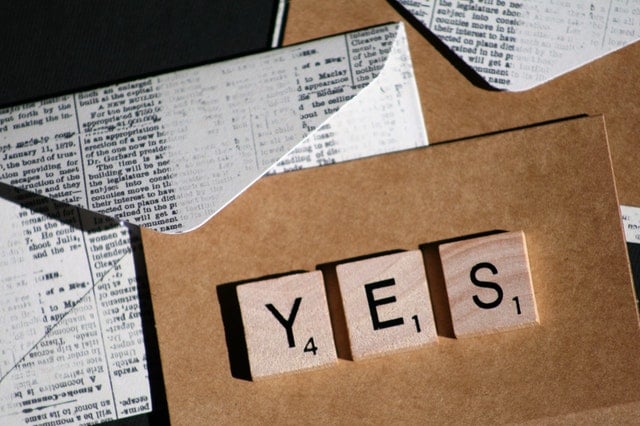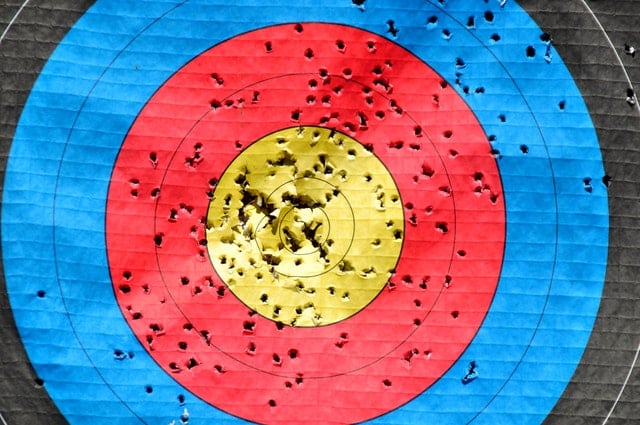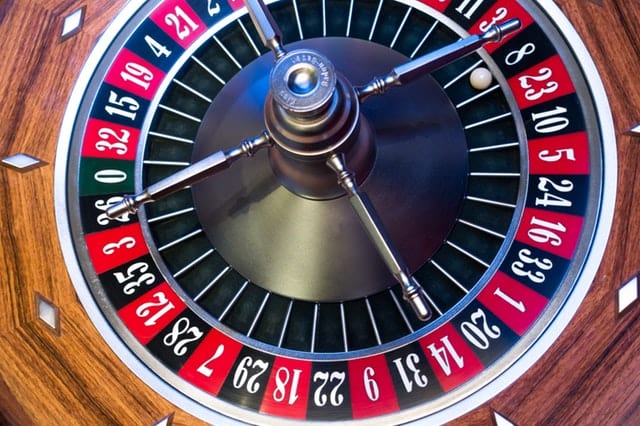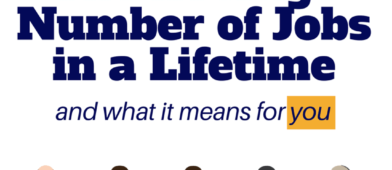You’re not rational. I’m not rational.
We’re emotional. Sometimes we’re annoyed. Sometimes we’re angry. Sometimes we’re just hangry.
We’re really no different than any other animals, except we can tell stories, and our decisions are affected by our emotions and part of that includes our biases.
Understanding these biases and how they affect our lives can be a game changer.
Table of Contents
Availability heuristic

What we know is given more weight than what we don’t.
The best example of this is the idea that something generally seen as bad for you (drinking, smoking, obesity, etc.) isn’t that bad because you know people who live long lives in spite of the condition. You know a person who routinely never wears a seatbelt and has never gotten hurt (yo, seatbelts save lives).
How does this cost you? 1. Wear a freaking seatbelt. 2. Do your homework, especially if all the information you have at the moment was provided by someone else.
You can be led astray and make poor financial choices because you don’t have enough information and have overvalued what you do have.
Anchoring

Anchoring is our tendency to overvalue the first piece of information we get when making any kind of decision. Once that anchor is established, all future decisions are made with a bias towards that initial anchor regardless of its accuracy.
How does this cost you? Have you ever met someone who has invested in actively managed mutual funds? The average expense ratio for an actively managed mutual fund is around 1.5%. Whether or not that sounds high to you depends on how much you know and many people’s first experience with mutual funds was in a 401(k) – where 1.5% is not expensive. It’s not cheap but it’s not ridiculous.
Actor Observer Bias

The actor observer bias is when you look at your actions and attribute them to external causes but look at someone else’s actions and attribute them to internal causes. It’s called the fundamental attribution error and it strongly affects how you interact with other people.
How does this cost you? This hurts you most when you attribute your own bad choices to environmental or other factors beyond your control. Sometimes there are external forces at work that you can’t control but often your choices are your own.
Bandwagon Effect

A close cousin to false consensus is the bandwagon effect. It’s when one person agreeing to something increases the likelihood that others in the group go along. It’s a form of group thinking that can be very dangerous.
How does this cost you? The herd mentality is always dangerous because people stop making independent decisions and start looking towards others, who may not have more knowledge or expertise, for guidance. This can lead to situations where you opt to do something you otherwise wouldn’t have.
Confirmation Bias

Confirmation bias is the best bias because you always feel good about it. It’s when you have a belief and then a tendency to remember all the things that support that belief while conveniently forgetting all the things that run counter to that belief.
This plays out most vividly whenever you talk about race and stereotypes. We tend to remember all the times a person of a particular background behaves in a way that confirms the stereotype without doing the same for counterexamples because they don’t even register. We don’t actively avoid that information, we don’t retain it.
It’s a common stereotype that Asians are good at math. Whenever you see an example of an Asian student being good at math, you remember it. I bet you can picture a few Asian people who are good at math right this moment.
But, when you see an Asian student who isn’t good at math, it doesn’t resonate. You don’t even think about it because not everyone is good at math. Ignoring how “Asian” encompasses thousands of ethnicities. Just looking at the Chinese, the population of China is almost 1.4 billion and they can’t all be good at math!
How does this cost you? You lose objectivity in your decision making. You need to remember to look at the data objectively and not rely on your memory for evidence because your memory is selective and awful.
Endowment Effect

The endowment effect is where you value something you own more than you would if you didn’t own it.
When studied, this is often linked with a behavioral model known as Willingness to Accept or Pay (WTAP). People often have a higher Willing to Accept (WTA) price than a Willing to Pay (WTP) price, where WTA is the price at which you’d sell an item versus what you’d pay for it.
How does this cost you? The relatively recent United Airlines fiasco is a prime example of this – United tried to convince people to take a voucher when they were already in their seats. Tyler Cowen goes through some game theory on how they could’ve played it differently and mentions the endowment effect, it’s really hard to get people to take a voucher when they’re already in their freaking seats.
Extremeness aversion

Human beings like to be safe. But not too safe.
Extremeness aversion is our tendency to avoid extremes, either too risky or too safe. Too risky of an investment and we tickle our loss aversion bias. Too safe and we have a bit of FOMO. The same applies too expensive and too cheap, which is why restaurants design their menus a certain way. 🙂
How does this cost you? Rather than analyze decisions independent of their relationship with one another or in our broader plan, we take the available information (availability heuristic) and use that to pick what is not an extreme. Nefarious actors on the other side of your decision can take advantage of this extremeness aversion and design sub-optimal choices in the middle.
False Consensus Effect

False consensus is when we overestimate how much others agree with us. You think there’s a consensus when there really isn’t, hence “false” consensus.
There are two theories as to why this happens. The first is that through social comparison – we compare ourselves with others and use others’ beliefs almost as an anchor. The second is of projection, we project our beliefs and feelings onto others.
How does this cost you? This can lead to social faux pas, which can hurt us financially if these are in business and work situations too. Another way this can affect us is leaning on our inclination for conformity – which can be enough of a push to get us to make decisions not necessarily in our best interest.
Halo Effect

You may have never heard of this bias but you’ve seen one of its effects – beautiful people are more successful.
The halo effect is when you inflate your evaluation of a person’s specific traits and characteristics because of how you feel overall about that person. The people you tend to like are often viewed as smarter, funnier, more hard working, and other positive traits.
How does this cost you? If you don’t know you’re evaluating someone higher simply because you like them (or just the way they look), you can make decisions based on likeability rather than actual ability. This can be a mistake when it comes to selecting advisors, like a financial advisor or lawyer, and it’s important you lean heavily on quantitative measures over qualitative ones.
Hindsight Bias

You know how they say hindsight is 20/20? It’s also biased. Hindsight bias is when things seem more obvious and predictable after they’ve happened.
It happens when your favorite team loses the game because your favorite team always loses big games (if that were true, why did you even watch?).
Or how you always seem to know the class material after you’ve taken the final (duh, you just saw the questions on the test).
How does this cost you? This is less directly harmful than some of the other biases, like optimism or survivorship, but it does impact you. It can lead you to believe you are a better predictor of events than you actually are, which can lead to decision making mistakes.
It can also lead you to feel a sense of inevitability towards events that are not inevitable and can be prevented. If you have a family history of lung cancer, you may believe it’s fine to smoke because you’re going to get lung cancer anyway.
Misinformation Effect

The misinformation effect is when the way a question is phrased impacts one’s memory of an event. This was first observed by psychologist Elizabeth Loftus and her work dealing with memory.
She lost her mother when she was 14 but remembered little of the event. On her 44th birthday, an uncle told her that she had discovered her mother’s body – which triggered a rush of vivid memories. Except her uncle mispoke, it was her aunt who had discovered the body and all those memories she had were false. (more on that!)
How does this cost you? There’s not as clear a line between this effect and its impact on your money, but it’s still important to understand. Misinformation happens all the time, sometimes accidentally and sometimes on purpose. Understanding that your memory is fallible (and biased) so always look for facts to back up your beliefs, no matter how strong they are. Also, understanding how a question is phrased and how it can influence your answer is insightful.
Optimism Bias

The optimism bias is exactly what you think it is – we’re overly optimistic about the future. We over estimate positive events and under estimate negative ones. Of all the biases, this is one I’m most happy about having because if we aren’t hopeful for the future, what can we be hopeful for? So while I wouldn’t want to tamp down optimism of any type, it’s important to recognize it because it can affect our decision making.
How does this cost you? This “everything will work out” type of thinking can result in a bit of complacency when action is required. If we have a tendency to under estimate negative events, we may not save as much into an emergency fund because we “won’t need it.” Isn’t it better to get a higher rate of return from the stock market?
If we overestimate positive results, we may plan for events that are easily delayed like raises and promotions. We jump into a new business venture or invest more aggressively than we should have. It requires us to be far more diligent in our predictions and our planning.
Overconfidence Effect

The Overconfidence Effect is where you are overly confident in your abilities, ranking of your performance over others, and over-precision in predicting your performance. This is especially true in situations where performances are subjective or hard to quantify.
To see this in action, answer this question – how fast can you throw a baseball? I’ve had the benefit of doing this at a science center and my actual throwing speed is lower than what I would’ve guessed. I would’ve guessed somewhere in the 70s. In reality, it’s in the lower 60s — never topping 65 MPH.
How does this cost you? Overconfidence never hurt anyone! 🙂
Recency Effect

The Recency Effect is when you give more weight to newer information compared to older information. Ever heard of the phrase “what have you done for me lately?” That’s a flippant phrase that exists because of the recency bias.
An even more pervasive phrase is that of the “new Normal.” It’s when you take recent events and make them the baseline for the future, rather than using data you have for decades.
How does this cost you? If there’s a tendency to give more weight to events that happened recently, then you need to work extra hard not to fall into the trap. There is a ton of data out there for nearly everything, so make sure you look at it all and not just what happened lately.
There’s a reason Roulette tables show a history… it’s because they know we have biases.
Survivorship Bias

Survivorship bias is when you come to incorrect conclusions based on what survives a selection process without taking into account the data set (only the survivors).
One of the most famous stories about survivorship bias involves a statistician during World War 2. Abraham Wald was a statistician in the Statistical Research Group and they were trying to reduce bomber losses. They had data from bombers returning from raids and were trying to use it to adjust the designs to build a better bomber. What Wald realized was that the data only showed bombers that survived, meaning the damage they sustained was not enough to bring down the aircraft. Reinforcing where those bombers were shot would not improve survivability, in fact doing the opposite would be more effective.
The data was biased because it came from surviving bombers. The ones that didn’t make it back never reported where they were damaged.
How does this cost you? It’s harder to pinpoint specific cases where a survivorship bias alone can cost you money but a good example is if you only study success stories then you could have a biased view of what leads to success. How you define successful can also have a similar impact.
At an extreme, if you only studied Steve Jobs, Mark Zuckerberg, Bill Gates, Michael Dell, Evan Williams, and Larry Ellison then you might believe that the path to becoming a billionaire means dropping out of college. In reality, a four year college degree can mean over $800,000 in lifetime earnings (Federal Reserve Bank of San Francisco, 2014)
How this works in real life
The place to see your biases and logical errors used against you is in a restaurant. Those menus are designed to get you to order certain items over others.
Don’t believe me? Read this very short article on Wired about menu design and then pay attention the next time you visit a restaurant.
Of course – not all restaurants do this.
In 2017, we dined at Mikael Jonsson’s Hedone (Michelin Star and named one of the Top 100 Best Restaurants in the World, sadly it closed in June of 2019) and their menu consisted of just two choices – do you want tasting menu for £95 or the tasting menu for £135? (go for the £135!) Not everything involves games.
What bias do you recognize and combat frequently?




Great summary, beat me to it, no complaints. I’ll scratch this one off my blog list of posts to write.
I use these in non finance matter far more than finance. I told my boss that a few of my nurses were prone to recency bias when talking about how they react to personal comments made to each other. They forget just how much they do for each other and distill opinions down to the most recent negative interaction. They need to pull back and focus on the big picture.